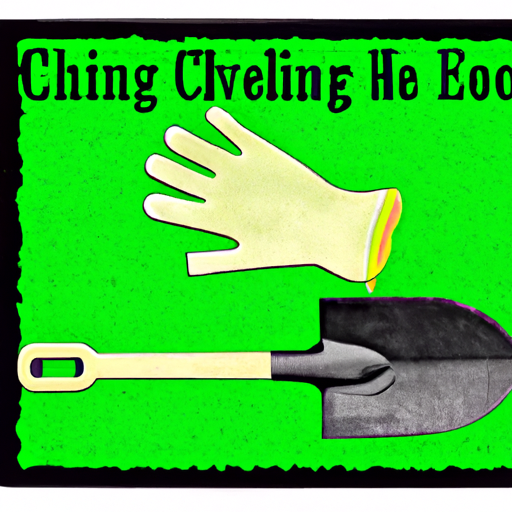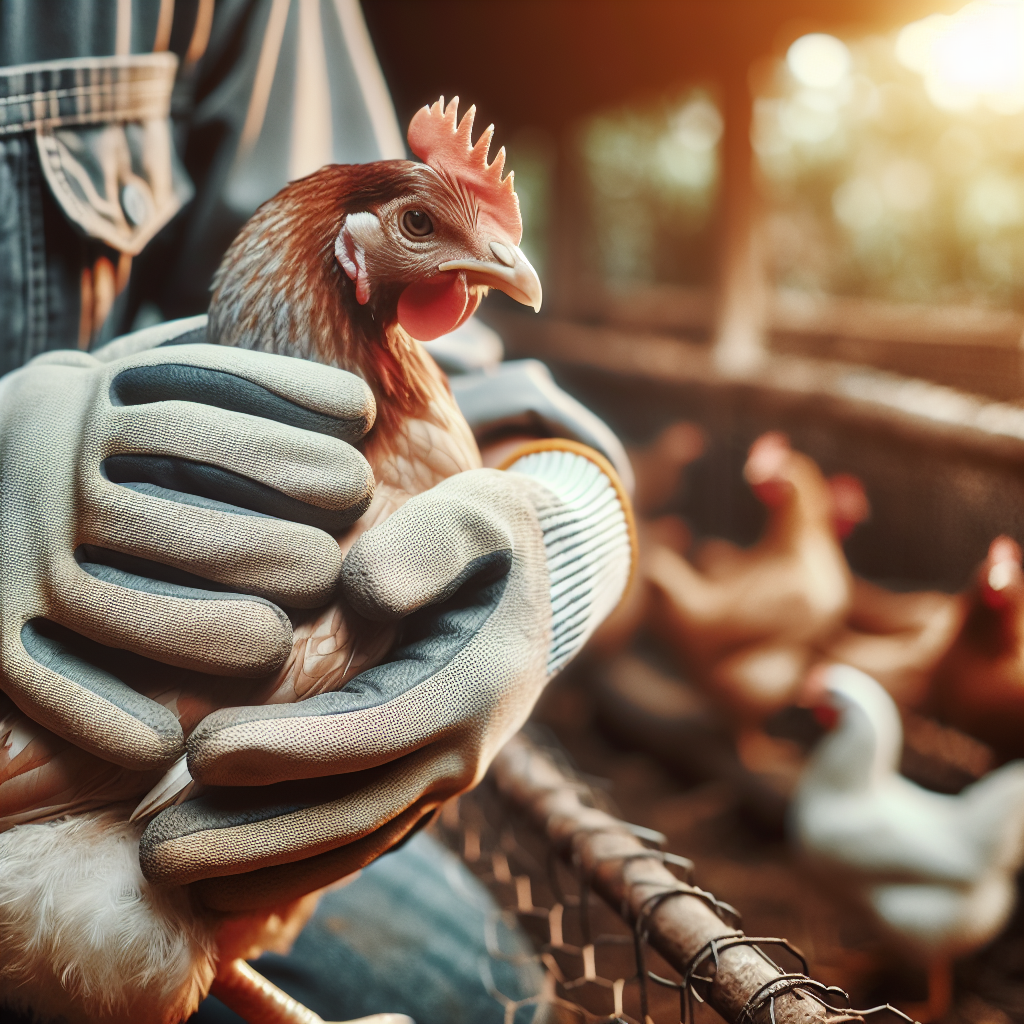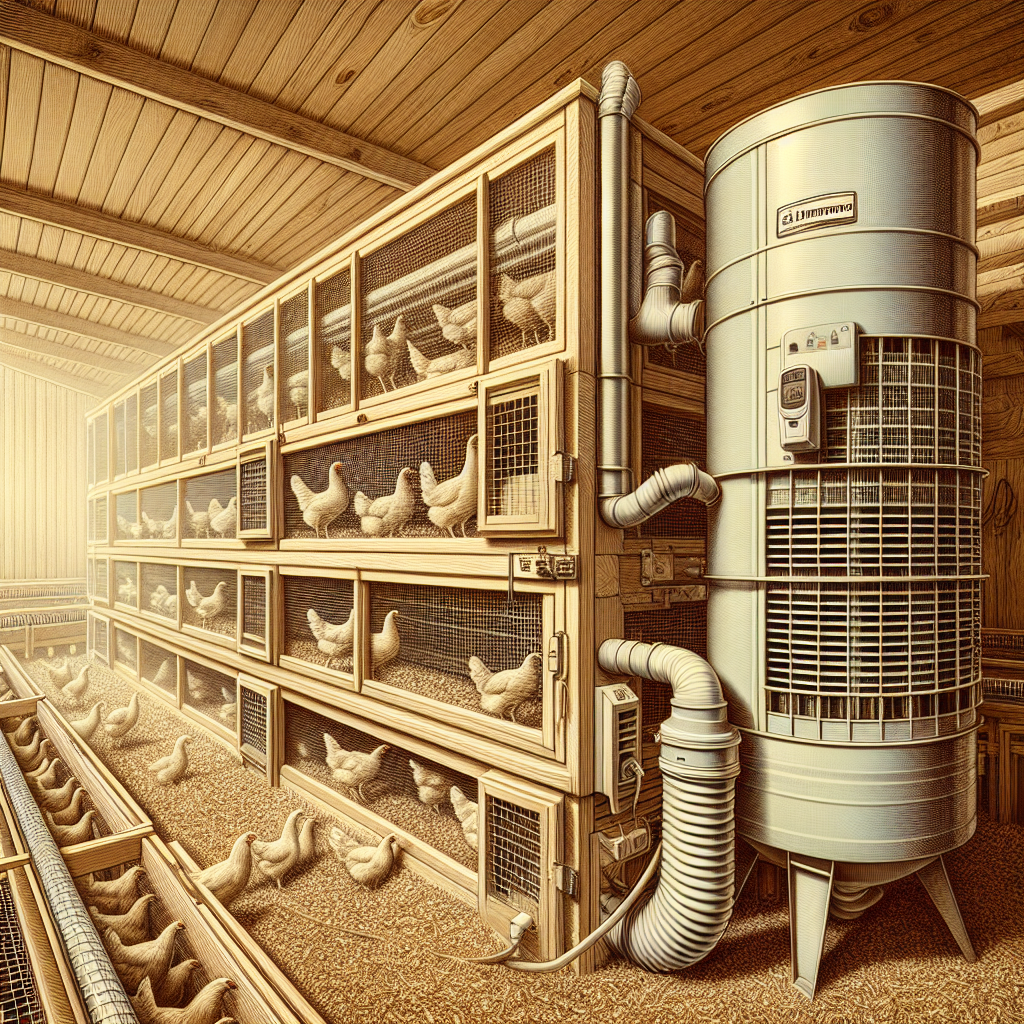Maintaining a chicken coop is crucial for the health and well-being of your feathered friends. But what tools and materials do you need to keep it in top shape? From sturdy gloves and a shovel for cleaning to wire cutters and extra chicken wire for repairs, this article will guide you through the must-have items to make your chicken coop maintenance a breeze. Whether you’re a seasoned chicken keeper or just starting out, read on to discover the essentials that will keep your coop clean, secure, and comfortable for your flock.
Cleaning Tools
Shovel
A shovel is an essential tool for chicken coop maintenance. It can be used to remove chicken droppings, debris, and waste from the coop floor. With a sturdy handle and a durable blade, a shovel makes it easy to keep the coop clean and hygienic.
Broom
A broom is another must-have cleaning tool for your chicken coop. It is perfect for sweeping away dust, feathers, and cobwebs from the walls and corners of the coop. Regular sweeping with a broom helps maintain a clean and healthy environment for your chickens.
Dustpan
To complement your broom, a dustpan is necessary to collect the swept dirt and debris. With a dustpan, you can easily gather the chicken droppings and waste into a bag for disposal. It makes the cleaning process more efficient and convenient.
Brush
A brush is handy for cleaning hard-to-reach areas in the chicken coop, such as crevices, corners, and nesting boxes. It helps remove dirt, cobwebs, and dried droppings that may have accumulated over time. Having a brush ensures that no part of the coop is left uncleaned.
Scrub brush
A scrub brush is useful for deep-cleaning tasks in the chicken coop. It can be used to scrub the floor, walls, and roosting bars to remove stubborn stains or build-up. A scrub brush with stiff bristles will effectively remove grime and ensure the coop is thoroughly clean.
Protection Gear
Gloves
To protect your hands while handling cleaning and maintenance tasks in the chicken coop, wearing gloves is essential. They provide a barrier between your skin and potential contaminants, such as chicken droppings or cleaning chemicals. Invest in a sturdy pair of gloves that are resistant to punctures and easy to clean.
Face Mask
Wearing a face mask is important to protect yourself from dust, allergens, and debris while working in the chicken coop. Chicken droppings can release harmful bacteria and particles into the air, and a face mask helps reduce the inhalation of these contaminants.
Safety Glasses
Safety glasses are crucial for protecting your eyes from any flying debris or dust particles while cleaning the coop. They provide a shield against potential hazards and ensure your eyes are safe from accidental injury.
Boots
Having a pair of sturdy boots specifically for working in the chicken coop is vital. They protect your feet from any sharp objects, droppings, or wet conditions. Look for boots that are easy to clean and provide good traction to prevent slips and falls.
Apron
An apron with pockets is a practical accessory for chicken coop maintenance. It allows you to keep essential tools and supplies close by, such as gloves, brushes, or a small container for collected eggs. By wearing an apron, you can easily access the necessary items without having to search for them.
Repair Tools
Hammer
A hammer is a versatile tool that can be used for various repair tasks in the chicken coop. It is essential for fixing loose boards, securing nails, or assembling new structures. Invest in a quality hammer with a comfortable grip for ease of use.
Nails
Having a supply of nails in different sizes is vital for repairing and maintaining the chicken coop. They are necessary for securing fences, fixing loose boards, or constructing new structures. Keep a variety of nails on hand to ensure you have the right size for every task.
Screwdriver
A screwdriver is essential for any coop repairs that involve screws. It is useful for assembling or disassembling parts of the coop, fixing hinges, or securing wire mesh. Invest in a set of screwdrivers with different heads to tackle a variety of repair tasks.
Pliers
Pliers are versatile tools that come in handy for various maintenance tasks in the chicken coop. They can be used for straightening wire, tightening nuts and bolts, and cutting or twisting wires. Having a pair of pliers with a comfortable grip will make your repair jobs easier.
Wire cutters
Wire cutters are specifically designed to cut through different gauges of wire. They are essential for any repairs or modifications involving wire mesh, fences, or hardware cloth. Ensure you have a pair of wire cutters that can handle the wire thickness used in your coop.
Painting Tools
Paintbrush
A paintbrush is necessary if you plan to paint or touch up the chicken coop. It allows you to apply paint evenly and precisely on surfaces such as walls, doors, or nesting boxes. Choose a paintbrush with synthetic bristles that are suitable for outdoor use.
Roller
For larger areas or even coats, using a paint roller can be more efficient than a paintbrush. It enables you to cover larger surfaces in less time, making it ideal for painting the walls or coop floor. Invest in a roller with a durable handle and quality nap for smooth application.
Paint tray
A paint tray is essential for holding and distributing paint while using a roller or brush. It provides a convenient and mess-free way to keep your paint accessible during the painting process. Look for a sturdy paint tray with grip handles for easy maneuverability.
Sandpaper
Sandpaper is a useful tool for preparing surfaces before painting or refinishing. It helps to smooth rough areas, remove old paint or stain, and create a clean and even surface for painting. Choose the appropriate grit of sandpaper based on the task at hand.
Primer
Using a primer before painting the chicken coop is essential for better adhesion and longevity of the paint. It helps seal the surface and allows the paint to bond more effectively. Apply a coat of primer after preparing the surface with sandpaper for optimal results.
Security Equipment
Locks
Installing locks on the doors and windows of your chicken coop is crucial for keeping your chickens safe from predators. Locks provide an additional level of security and prevent unwanted entry into the coop. Choose high-quality locks that are sturdy and durable.
Padlocks
Padlocks are an effective way to secure the coop gates or entrance points. They are durable, weather-resistant, and difficult to tamper with. Padlocks with combination locks or key locks provide added security.
Wire mesh
Wire mesh is a vital security equipment for chicken coops, especially for windows and ventilation openings. It prevents predators from entering the coop while allowing proper airflow. Choose a wire mesh made of strong and durable material that can withstand external pressure.
Door sensors
Door sensors are a modern security solution that can be used to monitor the coop’s entrance points. When a door is opened or closed, the sensor sends a signal to a connected device, such as a smartphone or alarm system. Door sensors provide real-time alerts and improve overall security.
Security cameras
Installing security cameras around the chicken coop provides an additional layer of protection. They act as a deterrent to potential predators and can capture any suspicious activity. Choose security cameras with features like night vision and motion detection for better surveillance.
Ventilation Materials
Window screens
Window screens are essential for maintaining proper airflow while keeping bugs and pests out of the chicken coop. They prevent insects from entering the coop and provide ventilation on hot days. Choose screens made of sturdy material that can withstand potential wear and tear.
Vents
Vents are necessary for proper air circulation within the chicken coop. They help remove excess moisture, ammonia, and odors, ensuring a healthy environment for your chickens. Install vents strategically to promote good airflow and prevent the buildup of harmful gases.
Exhaust fans
For larger chicken coops or areas with limited natural ventilation, installing exhaust fans is beneficial. They help remove stale air and moisture, reducing the risk of respiratory issues for your chickens. Choose exhaust fans that are specifically designed for agricultural use.
Insulation materials
Insulation materials are essential for maintaining a comfortable and regulated temperature inside the chicken coop. They help keep the coop warm in winter and cool in summer. Options for insulation materials include foam boards, reflective insulation, or natural materials like straw or hay.
Weatherstripping
Weatherstripping is necessary to seal any gaps or drafts in the chicken coop. It prevents cold air, rain, or pests from entering the coop, ensuring a comfortable and secure environment for your chickens. Choose weatherstripping that is durable and can withstand outdoor conditions.
Nesting Materials
Nest boxes
Nest boxes are essential for providing a comfortable and private space for your hens to lay their eggs. They should be easily accessible, well-built, and designed to prevent egg breakage. Choose nest boxes with removable bottoms for easy cleaning and maintenance.
Straw
Straw is a common nesting material that provides cushioning and insulation. It encourages hens to lay eggs in the nest boxes by creating a cozy environment. Regularly replace straw to maintain cleanliness and prevent the buildup of bacteria or pests.
Shavings
Wood shavings are another popular choice for nesting material. They provide a soft and comfortable surface for hens to lay their eggs. Ensure the shavings are clean, dust-free, and regularly replaced to maintain a hygienic nesting environment.
Hay
Hay can be used as nesting material for chickens, especially during colder months. It offers additional insulation and warmth. However, hay can become moldy or matted if not replaced regularly, so monitor its condition and cleanliness.
Pine needles
Pine needles can be an alternative nesting material for chickens. Some hens prefer the natural scent and texture of pine needles for their nests. Ensure the pine needles are free of any treatments or chemicals that may be harmful to the chickens.
Food and Water Accessories
Feeders
The right feeders are essential for providing your chickens with access to their food. Choose feeders that are durable, easy to clean, and appropriate for the size of your flock. Different feeder designs, such as hanging or trough feeders, cater to various coop setups.
Waterers
Waterers are necessary to ensure your chickens have access to clean and fresh water at all times. Choose waterers that are leak-proof, easy to refill, and provide adequate water for your flock’s size. Regularly clean and sanitize the waterers to prevent the growth of harmful bacteria.
Roosting bars
Roosting bars are comfortable perching spots for your chickens to rest and sleep. They should be sturdy and wide enough for the chickens to comfortably grip. Install roosting bars at varying heights to accommodate different chicken sizes and preferences.
Grain storage
Having proper grain storage containers is important for keeping your chicken feed fresh, dry, and free from pests. Choose containers that are airtight and rodent-proof. Store the grain in a cool, dry place to maintain its quality.
Heater
In colder climates or during winter months, a heater may be necessary to maintain a comfortable temperature in the chicken coop. Choose a heater that is designed specifically for agricultural use and follow all safety instructions to prevent accidents or fires.
Electrical Tools
Extension cords
Extension cords are essential for providing power to electrical tools and equipment in the chicken coop. Ensure you use heavy-duty extension cords rated for outdoor use and with built-in safety features, such as grounding.
Drill
A drill is a versatile tool that can be used for various tasks in the chicken coop, such as assembling or repairing structures, installing hardware, or making holes. Invest in a good quality, corded or cordless drill that suits your needs.
Wire strippers
Wire strippers are necessary for electrical maintenance and repairs in the chicken coop. They allow you to strip insulation from wires quickly and safely. Choose wire strippers with adjustable settings to accommodate different wire sizes.
Multimeter
A multimeter is a valuable tool for checking electrical connections, voltage, and continuity in the chicken coop. It helps troubleshoot any electrical issues and ensures the safety of your coop’s electrical system. Familiarize yourself with how to use a multimeter properly.
Heat lamp
A heat lamp can be used to provide supplemental warmth to young or vulnerable chickens during colder temperatures. Choose a heat lamp specifically designed for poultry use and follow recommended safety guidelines to avoid fire hazards or overheating.
Rodent Control Tools
Traps
Traps are effective tools for catching and removing rodents from the chicken coop. Choose traps that are designed for small rodents like mice or rats, depending on the pest problem you are facing. Regularly check and reset traps to maintain their effectiveness.
Bait stations
Bait stations are an alternative method to control rodents in the chicken coop. They contain lures or baits that attract pests and help eliminate them. Place bait stations strategically in areas where rodents are likely to frequent, while keeping them out of reach of chickens.
Sealant
A high-quality sealant is essential for closing any gaps, cracks, or holes in the chicken coop that may be entry points for rodents. Choose a sealant that is weather-resistant and can be used on various surfaces to ensure a secure coop environment.
Ultrasonic repellers
Ultrasonic repellers emit high-frequency sound waves that are unpleasant for rodents, deterring them from the coop area. They are safe to use around chickens and do not require any pesticides or traps. Install the repellers strategically for maximum effectiveness.
Predator decoys
Predator decoys, such as owl or hawk replicas, can help deter rodents from entering the chicken coop. The sight of a potential predator can scare away pests, reducing the risk of infestation. Place the decoys in visible locations to mimic a natural predator presence.
With these essential tools and materials for effective chicken coop maintenance, you can ensure the comfort, health, and security of your flock. Regular cleaning, repairs, and necessary precautions will create a safe environment for your chickens and promote their well-being. Remember to handle all tools and materials with care, follow safety guidelines, and address maintenance tasks promptly to prevent any issues from escalating. Happy chicken keeping!




